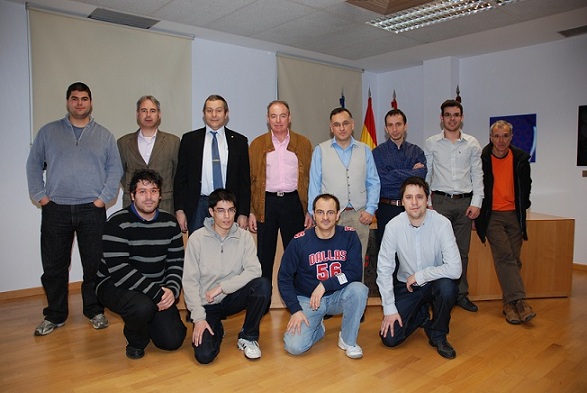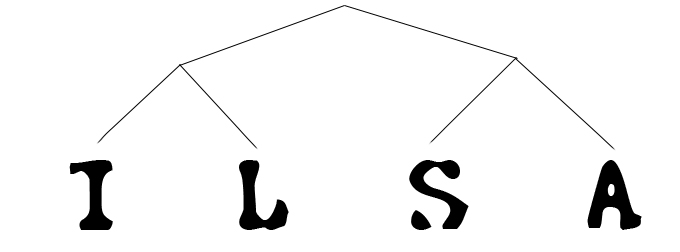Presentation
ILSA is an interdisciplinary research group that brings together lecturers and researchers from several centers and departments at Universidad Complutense de Madrid (UCM): the Computer Science School (Software Engineering and Artificial Intelligence, and Computing Systems and Computation Departments), the Arts Schools (Roman Philology, Slavic Philology and General Linguistic Department), and the Education Sciences School (Didactic and School Organization Department). The group research interests are: language-driven software development (i.e., software development using techniques borrowed from the field of design and implementation of computer languages), and application development in the fields of digital humanities and e-learning. ILSA is an UCM official research group (no. 962022).

As for language-driven software development, ILSA’s current research focuses on the foundations and applications of attribute grammars. In particular, we are working on the following topics:
- Practical applications of attribute grammars to various aspects of software development: efficient processing of semi-structured information (XML –XLOP system, JSON, RDF, etc.), model transformation (AGT system), and generation of interactive and/or web applications.
- New modularization proposals for attribute grammar-based specifications: multi-view attribute grammars.
- Educational tools for teaching and/or learning attribute grammars, such as the PAG system for the rapid prototyping of attribute grammars, and the Evaluators tool for the generation of videogames from attribute grammars.
Concerning application development, we have four main research topics:
- Collaborative annotation of digitized literary texts. This research topic is being developed in collaboration with the LEETHI research group, from the UCM Arts School. Its aim is the formulation of a collaborative text annotation model, devised for the online annotation of literary works by students during their critical reading of these works. The main outcome of this line is the @Note system.
- Production and cataloging of historical documents archives. This research line aims at developing tools to assist researchers in History in all the tasks performed on thematic documentary archives. In particular, we are working on the construction of a tool for managing documents concerning Hispanic-Russian diplomatic relations in the period of XVII – XX centuries.
- Competency evaluation management in the context of the European Space of Higher Education. We are developing a model based on collaborative formative assessment, which will be the starting point for the construction of a support system for the mentioned competency evaluation management scenario.
- Maintenance, evolution and enhancement of several systems oriented to the production of learning object repositories in specialized domains (Chasqui, OdA, etc.).
In addition to our collaboration with a number of Spanish companies (e.g., BABEL, DyR and Varadero), ILSA is being founded by Google under the Google's Digital Humanities Award Program. Actually, a proposal of ILSA developed in collaboration with the LEETHI research group was awarded in 2010 with one of the 12 worldwide awards granted by Google for the development of the digital humanities. Moreover, ILSA has established relationships with several international research groups and institutions (Macquarie University, Australia: E-Learning Centre of Excellence; Universidade Federal de Santa Catarina, Brasil: NUPILL and LAPESD research groups; Universidad Pontificia Católica de Chile; Praga University, Czech Republic; Novi Sad University, Serbia, …). Besides, ILSA is a member of the EU COST network INTEREDITION, and some of its members participate in the AENOR subcommittees dealing with the standardization of learning technologies (AEN/CTN 36) and of linguistics and terminology (AEN/CTN 191), as well as in the ISO committee for the standardization of terminology, language resources and linguistic annotations (ISO/TC 37). ILSA is also a member of the Moncloa International Campus of Excellence (Cultural Heritage Cluster).
